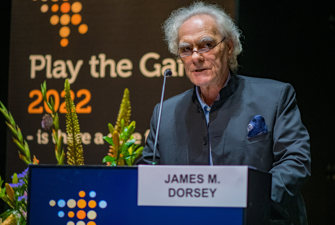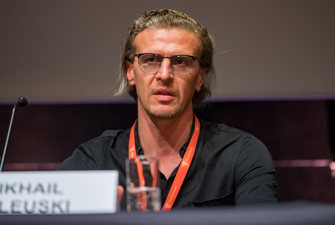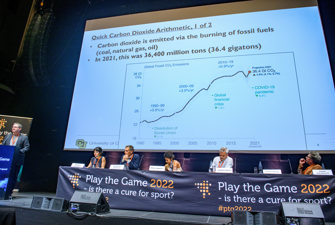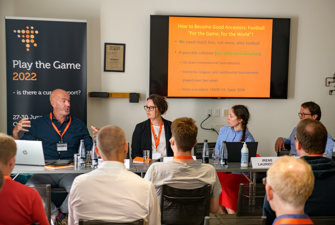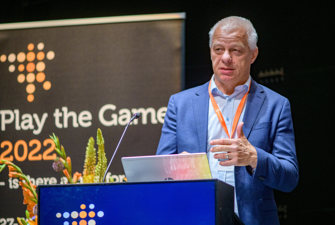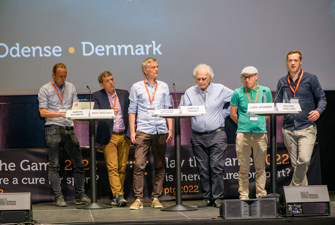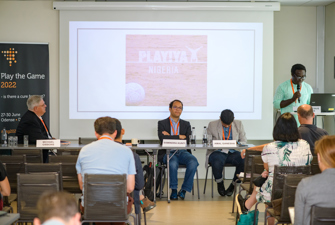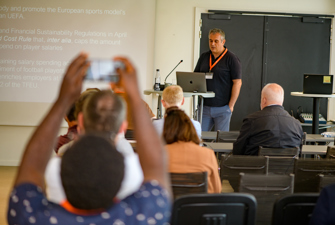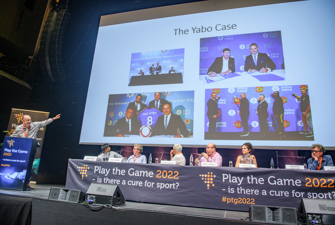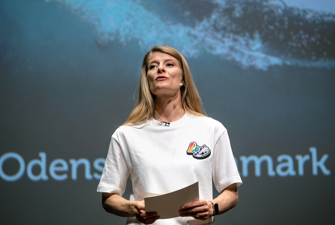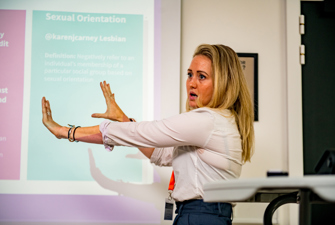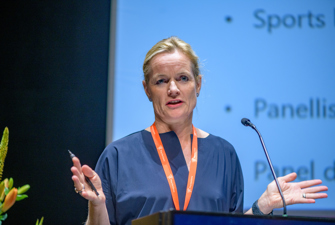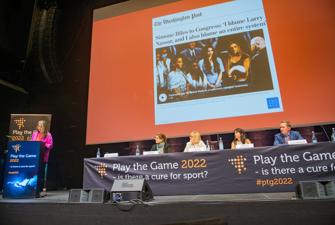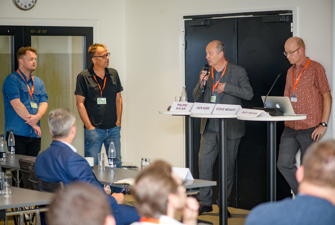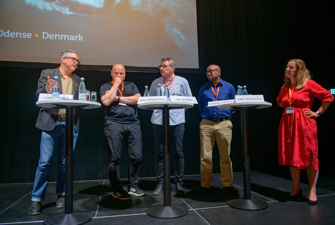Peter Donnelly: Children’s elite training meets the definition of child labour
Problems with children’s training were recognised in the 1960’s but reform has been slow in coming, argued professor emeritus Peter Donnelly in a session at Play the Game 2022. There is a need for regulation, not recommendations, he said.
Children’s training for high performance sport fits many of the accepted definitions of child labour, argued Peter Donnelly, professor emeritus at the University of Toronto in a session at Play the Game 2022 on fighting abuse of athletes.
To compete at an elite level, children are expected to train intensively from an age where they would not be expected to work. Often, their training regime is potentially hazardous, with the ultimate dual aims of prestige and financial reward. According to Donnelly, such practices must be described as child labour.
“When they are participating for their own or someone else’s gain, it is considered to be work,” he said.
“Not all training automatically qualifies as child labour, but it can be if the work is hazardous or brings economic reward” he said.
Other, lesser-known abuses include the sale of children’s medical data, Donnelly said.
According to the International Labour Organisation, child labour is defined as work that harms the physical or mental development of any person under 18, or deprives them of their childhood, their potential, or their dignity.
“Some child athletes are clearly working” Donnelly said. “They are training every day with the expectation of future paid work. We combat child labour in other areas. Why not in sport?”
The practice has existed as long as elite sport, he said, but intensified along with the growth in prestige and financial reward for sporting achievement.
“Before then, the kids normally came from wealthy families” he said. “They were well protected. There was no huge financial reward for success.”
Problems with children’s training were recognised in the 1960’s, he pointed out, but for many years the issue was given little prominence.
“We knew it was a problem back then” he said. “But no one was interested in the concept of child labour. Sport was seen as play, not work.”
Two new reports strengthen the case for reform
Reforms have been slow in coming, Donnelly said. However, two recent reports have strengthened the case for reform.
A newly released report by Anne Whyte QC into British Gymnastics found that the UK national governing body presided over a culture where young gymnasts were subject to numerous abusive practices, and the system that prioritised the pursuit of medals over child protection. Around 75 per cent of British Gymnastics’ members are children under the age of twelve.
Furthermore, a May 2022 white paper from the Centre for Sport and Human Rights found that the conditions experienced by child athletes are “similar to those of children working in more recognised forms of child labour.”
According to Donnelly, the sports community needs to recognise that children’s elite training should be subject to similar rules to those governing conventional child labour.
“There is a need for regulations, not recommendations,” he said.
